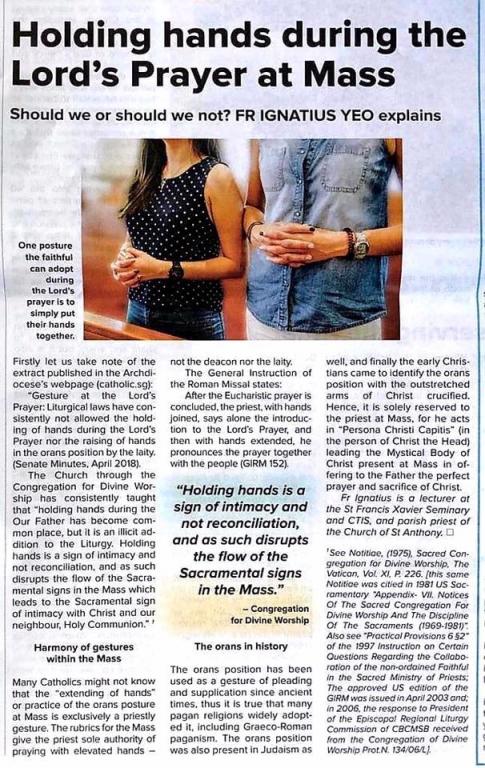Morning’s Minion generated some good discussion around the U.S. bishops’ upcoming update of their voter’s guide, Faithful Citizenship a few days ago, which is set to be discussed at their upcoming meeting in Baltimore. Also on the agenda is the approval of a new document on liturgical music, Sing to the Lord: Music in Divine Worship.
The draft articulates more clearly a theology of the liturgical celebration and includes a reflection on Redemptionis Sacramentum, no. 116, the latest Vatican document related to the issue. It incorporates the concept of “progressive solemnity” to outline the process of choosing what to sing from among the various parts of the Mass. The text also explores the role of the composer, music in the celebration of sacraments, instrumentation, language and cultural issues, technology, copyrights and participation aids.
I have not read the previous document in some time, and I can’t remember if it dealt with the issues of technology and copyright. But this should be an interesting section in the contemporary context where the Catholic “liturgical music industry” functions in a similar way to the secular music industry. Over at my main blog, I have promised my readers (a couple times now!) that I will do a bit of writing on why Catholics should be concerned about the music industry in general; many of my concerns would apply to Catholic liturgical music as well.
The section on instrumentation and “liturgical appropriateness” should also be interesting in light of the (somewhat overblown and largely puzzling) interest in the Tridentine Mass. The issue of liturgical appropriateness, of course, generates fierce arguments, some being strongly in favor of “inculturation,” and others taking cheap shots at local church manifestations of inculturated liturgy. The use of culturally-appropriate instruments, like the guitar, is one such example of legitimate inculturation. Of course, there are both good and bad “guitar Masses,” no doubt (and guitarists who have been playing for a while are certainly in a good position to know the difference!), just as there are good and bad “organ Masses” and good and bad “acappella” Masses. But I still find it hard to believe that some people simply don’t think guitars can be sacred instruments at all. They obviously haven’t heard Segovia… or the Edge, for that matter!












